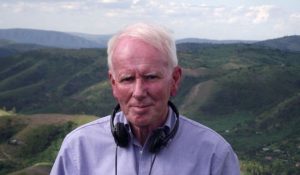 I have spent a good deal of my working life reporting first-hand on disasters. Floods and famines, earthquakes and cyclones, humanitarian crises triggered by conflict – mostly in Africa and South Asia. Some of them were sudden, others – like the Ethiopian famine of the mid-1980s – unfolded slowly and inexorably. But what stays with me is the effects on individuals, and their responses.
I have spent a good deal of my working life reporting first-hand on disasters. Floods and famines, earthquakes and cyclones, humanitarian crises triggered by conflict – mostly in Africa and South Asia. Some of them were sudden, others – like the Ethiopian famine of the mid-1980s – unfolded slowly and inexorably. But what stays with me is the effects on individuals, and their responses.
In my experience, people show astonishing examples of courage, selflessness and dedication – I have often seen people who are displaced from their homes find shelter with the poorest families. In Mozambique – during famine conditions in the civil war – I met a health worker who risked mines and other threats to walk to a distant town by night to restock medicines for his clinic. The midst of a disaster is truly a humbling place.
Can we compare the responses to these disasters with our response to the unfolding coronavirus pandemic?
In one important respect, I think we can. “Common humanity” is a widely used phrase, so much so that it risks losing its value as a goal to bind us at a time of crisis. But it is an immensely powerful image, best captured by the African concept of Ubuntu, so cherished by Archbishop Desmond Tutu. Ubuntu is translated in many ways: “I am because of who we all are”, “humanity towards others” or “a universal bond of sharing that connects all humanity”. All these sum it up well. I once heard it said in Africa that you only know what Ubuntu means when it is absent.
We see Ubuntu in much of the response to coronavirus, and hope it will underpin the response of individuals, communities and whole societies as the virus continues its spread. And because we are indebted to Africa for the concept it could help remind us that many African countries and their health systems will be hit – and tested severely – by the virus.
